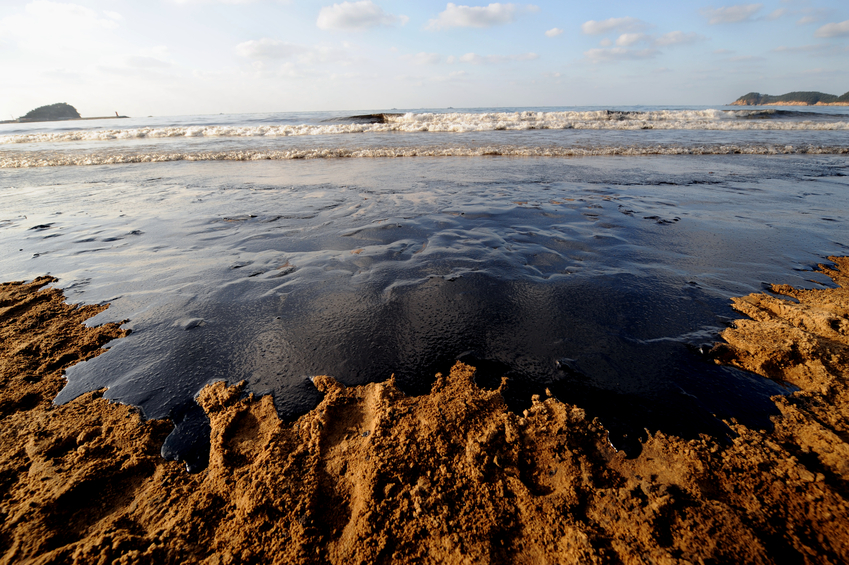Chemical and Florida Laws, Rules & Ethics 18 PDH Discount Package 1
Courses in this Package
Fundamentals of Chemistry (H05-001)
Hazards of Chemicals and Gases (H05-002)
Chemical Hazard Classification Process (H02-009)
Calculation of Gas Density and Viscosity (H02-011)
Ozone Treatment for Cooling Towers (M02-002)
Engineering Laws, Rules and Ethics for Florida Professional Engineers (FL2-006)

This online engineering PDH course addresses the basics of chemistry. It introduces concepts on the atomic structure of matter. It also discusses the periodic table and the significance of the information in a periodic table. Furthermore, it explains chemical bonding, the laws of chemistry, and chemical equations.
This 5 PDH online course is applicable to chemical and environmental engineers, design and construction personnel, technical staff and facility operators who are interested in gaining a better understanding of the basics of chemistry.
This PE continuing education course is intended to provide you with the following specific knowledge and skills:
- Characteristics of atoms
- The periodic table
- Chemical bonding
- Chemical equations
- Acids, bases, salts and pH
In this professional engineering CEU course, you need to review Module 1, "Fundamentals of Chemistry" of the Department of Energy Publication DOE-HDBK-1015/1-93, "Chemistry".
Upon successful completion of the quiz, print your Certificate of Completion instantly. (Note: if you are paying by check or money order, you will be able to print it after we receive your payment.) For your convenience, we will also email it to you. Please note that you can log in to your account at any time to access and print your Certificate of Completion.

This online engineering PDH course explains why certain chemicals are considered hazardous to personnel working in facilities containing such chemicals. It also provides an overview of handling chemicals as well as provides resources of information about these chemicals.
The various chemicals found in our industry as well as the home are useful when properly applied. If the user is uninformed about correct applications, storage, and potential hazards, these chemicals can become threats to our safety.
This 5 PDH online course is applicable to chemical and environmental engineers, design and construction personnel, technical staff and facility operators who are interested in gaining a better understanding of the hazards of chemicals and gases.
This PE continuing education course is intended to provide you with the following specific knowledge and skills:
- Corrosives
- Toxic compounds
- Compressed gases
- Flammable and combustible liquids
In this professional engineering CEU course, you need to review Module 5, "Hazards of Chemicals and Gases" of the Department of Energy Publication DOE-HDBK-1015/1-93, "Chemistry".
Upon successful completion of the quiz, print your Certificate of Completion instantly. (Note: if you are paying by check or money order, you will be able to print it after we receive your payment.) For your convenience, we will also email it to you. Please note that you can log in to your account at any time to access and print your Certificate of Completion.

This online engineering PDH course addresses the identification of the chemicals to be classified; explains the process of data collection and describes the process and information needed for data analysis. Furthermore, this course presents information on the rationale used to develop the classification of the various hazards.
OSHA's Hazard Communication Standard (HCS) is designed to protect against chemical-source injuries and illnesses by ensuring that employers and workers are provided with sufficient information to anticipate, recognize, evaluate, and control chemical hazards and take appropriate protective measures. The purpose of the Hazard Communication Standard is to ensure that the hazards of all chemicals produced or imported are classified, and that the information on the hazardous chemicals is transmitted to employers and workers.
The 2 PDH online course is intended for chemical manufacturers and distributors, employers, engineers, physicians, construction workers, and all other personnel who are interested in learning more about chemical hazard classification process.
This PE continuing education course is intended to provide you with the following specific knowledge and skills:
- Learning how to identify the chemicals to be classified
- Understanding the data collection process
- Learning how to analyze the data or findings
- Knowing how to record the findings
Upon successful completion of the quiz, print your Certificate of Completion instantly. (Note: if you are paying by check or money order, you will be able to print it after we receive your payment.) For your convenience, we will also email it to you. Please note that you can log in to your account at any time to access and print your Certificate of Completion.

This engineering online PDH course contains a discussion of, and an example calculation of, the density and viscosity of a specified gas at a given temperature and pressure. In this course, the Redlich Kwong equation will be used for calculation of the compressibility factor of a gas. The Sutherland formula will be discussed and used in example calculations. Another method for calculating the viscosity of air at a specified temperature and pressure will also be presented and discussed.
The density and/or viscosity of a gas is often needed for some other calculation, such as pipe flow or heat exchanger calculations. If the gas temperature is high relative to its critical temperature and the gas pressure is low relative to its critical pressure, then it can be treated as an ideal gas and its density can be calculated at a specified temperature and pressure using the ideal gas law. If the density of a gas is needed at a temperature and pressure at which it cannot be treated as an ideal gas law, however, then the compressibility factor of the gas must be calculated and used in calculating its density. The Sutherland formula can be used to calculate the viscosity of a gas at a specified temperature and pressure if the Sutherland constants are available for the gas.
This 2 PDH online course is intended for chemical, mechanical and environmental engineers. After completing this course, you will have knowledge about methods for calculating the density and viscosity of a gas at specified temperature and pressure.
This PE continuing education course is intended to provide you with the following specific knowledge and skills:
- Ability to calculate the density of a gas of known molecular weight at a specified temperature and pressure at which the gas can be treated as an ideal gas
- Ability to calculate the compressibility factor for a gas at a specified temperature and pressure, using the Redlich-Kwong equation, if the molecular weight, critical temperature and critical pressure of the gas are known.
- Ability to calculate the density of a gas at a specified temperature and pressure for which the gas cannot be treated as an ideal gas, if the molecular weight, critical temperature and critical pressure of the gas are known.
- Ability to calculate the viscosity of a gas at a specified temperature if the Sutherland constant for the gas is known and the viscosity of the gas at a suitable reference temperature is known.
- Ability to calculate the viscosity of air at specified air temperature and pressure.
- Ability to make all of the calculations described in these learning objectives using either U.S. or S.I. units.
In this professional engineering CEU course, you need to review the course document titled, “Calculation of Gas Density and Viscosity”. In addition, you need to review the Excel spreadsheet titled, "Real Gas Density Calculators_US or SI units".
Real Gas Density Calculators_US or SI units (43 KB)
Once you complete your course review, you need to take a multiple-choice quiz consisting of fifteen (15) questions to earn 2 PDH credits. The quiz will be based on both documents.
Upon successful completion of the quiz, print your Certificate of Completion instantly. (Note: if you are paying by check or money order, you will be able to print it after we receive your payment.) For your convenience, we will also email it to you. Please note that you can log in to your account at any time to access and print your Certificate of Completion.

This online engineering PDH course describes the basics about ozone treatment of cooling towers as a "new technology". Cost benefits of using ozone in treatment of cooling tower water, application considerations, maintenance issues, utility initiatives, performance of cooling tower and laboratory versus case study perspectives are discussed.
The form of oxygen known as ozone has been recognized for nearly a century for its powerful ability to disinfect water. Cooling tower water must be treated to limit the growth of mineral and microbial deposits that can reduce the heat transfer efficiency of the cooling tower. The use of ozone to treat water in cooling towers is a relatively new practice that is increasing in popularity, and it has good potential for use in commercial building systems.
This 2 PDH online course is applicable to mechanical engineers, design and construction personnel, technical staff and facility personnel who are interested in gaining a better understanding of ozone treatment for cooling towers.
This PE continuing education course is intended to provide you with the following specific knowledge and skills:
- Ozone treatment of cooling tower waters
- Cost benefits of using ozone water treatment
- Performance of cooling towers with ozone water treatment
- Maintenance considerations when using ozone water treatment
- Manufacturers and suppliers of ozone generating equipment
- Ozone equipment selections considerations
In this professional engineering CEU course, you need to review the material contained in Ozone Treatment for cooling Tower, DOE/DOD/SERDP.
Upon successful completion of the quiz, print your Certificate of Completion instantly. (Note: if you are paying by check or money order, you will be able to print it after we receive your payment.) For your convenience, we will also email it to you. Please note that you can log in to your account at any time to access and print your Certificate of Completion.

Upon successful completion of the “Engineering Laws, Rules and Ethics for Florida Professional Engineers” course, we will report your PDH credits for this course to the FBPE within 2 business days. Therefore, it is imperative that you indicate your Florida PE license number in your CED account so that we can successfully do so. Once reported, please allow up to 48 hours for the FBPE to update their database.
This online PDH course is a FL approved Engineering Laws, Rules and Ethics course and is being offered by Continuing Education and Development, Inc, a FL approved Continuing Education Provider (CEP No. 0004183).
The first part of this course begins with an overview of the Laws and Rules governing the practice of engineering in the State of Florida (Chapter 1) including:
- Florida Statutes, Chapter 455, “Department of Business and Professional Regulation”
- Florida Statutes, Chapter 471, “Engineering”
- Florida Administrative Code, 61G15, F.A.C., “Florida Board of Professional Engineers”
Then it continues to address the rules amended, adopted or otherwise repealed from 61G15, F.A.C. (Chapter 2) as well as the changes to Chapters 455, F.S. and 471, F.S. (Chapter 3), within the preceding biennium, as applicable.
The second part of this course presents engineering ethics and the principles of professional responsibility (Chapter 4). It further illustrates the application of Chapters 455 and 471, F.S. to a randomly selected set of ethical and disciplinary cases (Chapter 5).
This 2 PDH online engineering course is applicable to Professional Engineers licensed in the State of Florida and who are required to demonstrate continuing professional competency in the Florida Laws, Rules and Ethics as a condition of license renewal. For each renewal period, every licensee must complete eighteen (18) professional development hours as follows:
- One hour must relate to this chapter and the rules adopted under this chapter;
- One hour must relate to professional ethics;
- Four hours must relate to the licensee’s area of practice; and
- The remaining hours may relate to any topic pertinent to the practice of engineering.
This PE continuing education engineering course is intended to provide you with the following specific knowledge and skills:
- Understanding the different Florida laws and rules regulating the practice of engineering in the State of Florida and their application to Professional Engineers
- Learning the rules adopted, amended or repealed from 61G15 within the preceding biennium
- Learning the changes made to Chapters 455, F.S. and 471, F.S. within the preceding biennium
- Understanding ethical behavior and the principles of professional responsibility in the field of engineering
- Understanding the general application of Chapters 455 and 471, F.S. to various ethical and disciplinary cases of Professional Engineers
Upon successful completion of the quiz, print your Certificate of Completion instantly. (Note: if you are paying by check or money order, you will be able to print it after we receive your payment.) For your convenience, we will also email it to you. Please note that you can log in to your account at any time to access and print your Certificate of Completion.